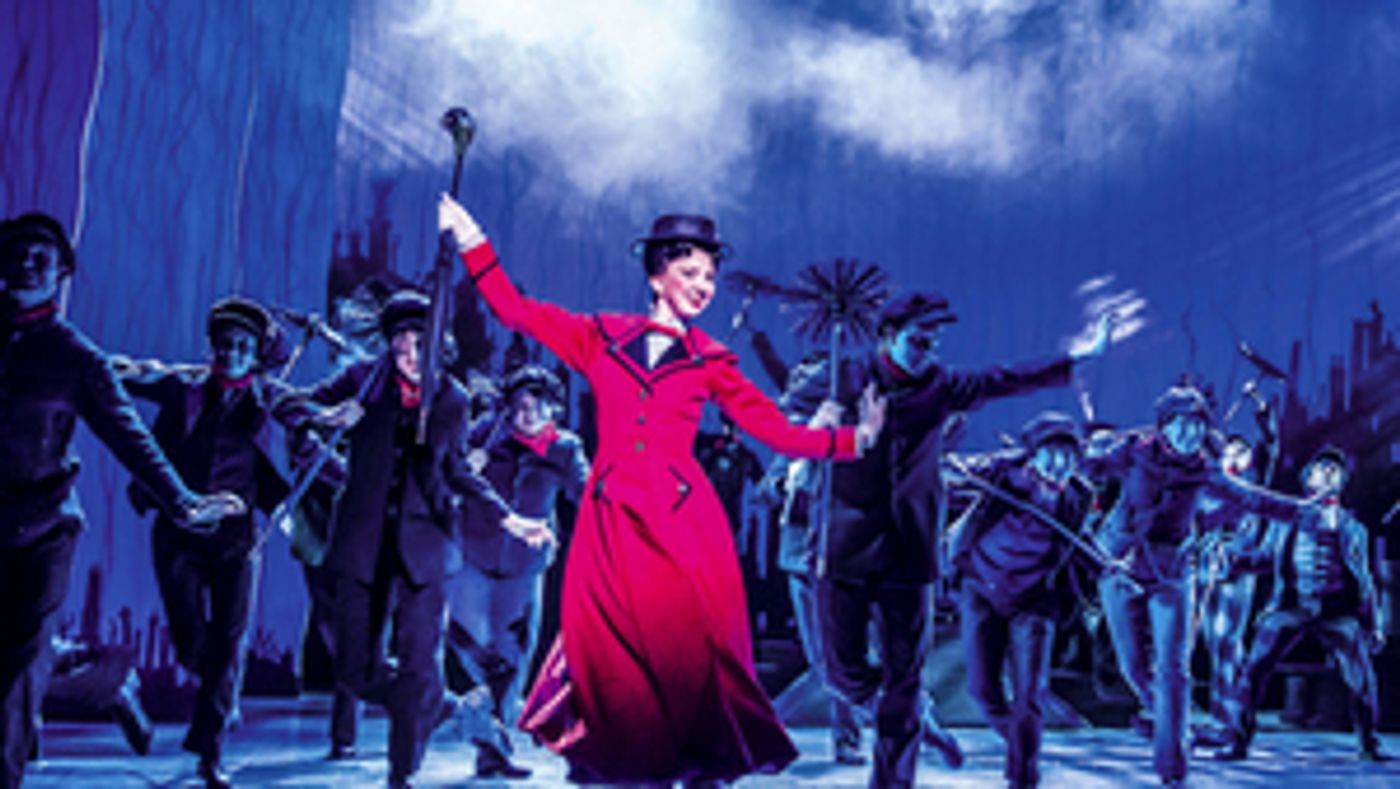Review: MARY POPPINS, Prince Edward Theatre
![]() Mary Poppins has descended once again into our midst, and she is as amiably mischievous as ever. Based on the stories of P. L. Travers and the iconic 1964 Disney film, The Sherman Brothers' 2004 musical (with a book by Julian Fellowes) is back in the West End with several new songs, a buzzing cast, and pitch-perfect choreography.
Mary Poppins has descended once again into our midst, and she is as amiably mischievous as ever. Based on the stories of P. L. Travers and the iconic 1964 Disney film, The Sherman Brothers' 2004 musical (with a book by Julian Fellowes) is back in the West End with several new songs, a buzzing cast, and pitch-perfect choreography.
 This widely known story of familial affection and social sympathy revolves around the Banks household, where the wayward children, Jane and Michael, have made a habit of scaring off their nannies. Enter, through the chimney, Mary Poppins: her magical touch and tender heart not only show the children what it means to respect and care for others, but also strengthen the bonds in their semi-estranged family.
This widely known story of familial affection and social sympathy revolves around the Banks household, where the wayward children, Jane and Michael, have made a habit of scaring off their nannies. Enter, through the chimney, Mary Poppins: her magical touch and tender heart not only show the children what it means to respect and care for others, but also strengthen the bonds in their semi-estranged family.
In its revamped and prolonged version, Mary Poppins avails itself of more than a sprinkle of magic. Chief among the commendable aspects of Richard Eyre and Matthew Bourne's glittery production is a series of impressive scenic illusions designed by Paul Kieve and Jim Steinmeyer. From the contents of Mary Poppins' endlessly capacious handbag to a fantastically reassembling kitchen, numerous components of this dreamlike world bring out well-earned gasps of surprise from the audience.
Add to this Bourne and Stephen Mear's stellar choreography, which frequently manages to be both hyper and sharp, sprawling and focused. Especially in the famous "Supercalifragilisticexpialidocious" scene, where the company's gestural cohesion is astounding. Even in moments of domestic calm, their movements carry muted tones of otherworldly charm.
Though Bob Crowley's eclectic set design proves too varied, its central feature is an elegant group of doll's-house-like structures that take us into the rooms of the Banks' London residence. What steers these towards visual unevenness is the addition of a number of backdrops and scenic devices that create a discordant medley. Hugh Vanstone and Natasha Katz's duly impactful lighting often has more consistency, but at times it, too, feels patchy in its hallucinatory intensity.
What makes up for these wobbly details is a generally tremendous company. Zizi Strallen delivers a delicately controlled, tight performance as Mary Poppins, who grows ever more elusive and enchanting. As the chimney sweep Bert, Charlie Stemp is a flurry of heart-warming energy, while Fred Wilcox and Nuala Peberdy are remarkable as Michael and Jane. Petula Clark's Bird Woman and Claire Moore's Miss Andrew provide admirably colourful support to the main parts.
Even this fine cast, however, is hard pressed to justify the nearly three-hour running time of the production. For all its strengths, Mary Poppins does not earn (or make the most of) this unusual length, especially given that it is, at its core, a family show. While some of George Stiles and Anthony Drewe's newly added musical numbers, such as "Practically Perfect" and "Brimstone and Treacle", blend in organically with the original music, some others carry an air of redundancy. With its simple, straightforward story, Mary Poppins is by no means a hard show to prune, but this revival ends up being baggy.
Mary Poppins the character may be "practically perfect in every way", but her show ultimately falls short of winning that ambitious accolade. All the same, don't be mistaken: this production still comes with an abundance of moving, dazzling moments. And when Mary Poppins takes flight for the last time, her majestic departure rounds off something quite special.
Mary Poppins at Prince Edward Theatre until 31 May, 2020
Photo credit: Johan Persson
Reader Reviews

Powered by
|
Videos

